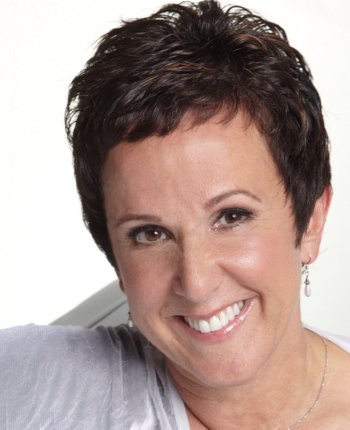Last updated on January 22nd, 2019 at 01:57 pm
How to get the most out of your speaker coach
In the speaking industry, I have had the benefit of sitting on both sides of the coaching desk. I coach speakers, and I have received coaching. There are lots of resources available to speakers to help them grow their business and perfect their craft. There are many that were worth the money, and many that weren’t. In most cases, the value of the coach depends on how much the speaker is willing to work. Often I will hear speakers (or be guilty of it myself) blame the coach when the speaker didn’t do any homework or put any effort into following the coach’s advice. If you are going to invest time and energy into a coaching relationship, or any event where you are going to learn from another speaker, here are some ways to get your money’s worth:
- Be coachable. Sometimes we go to a coach saying we want help, when what we really want is to be told we are right. If you are going to ask someone else for advice, be willing and open to hearing it and considering it. Don’t let it make you bitter or angry, let it make you curious. There is more than one way to success.
- Don’t blame the coach when you don’t like the answers. Every successful speaker has followed a different model to get where they are. Their frame of reference is what THEY DID to get the business. So of course they are going to think their way is right, or at the very least a path that works. You come to them wanting to know what they do to make money. Don’t be upset when they tell you and it doesn’t agree with your model or your opinion.
- Don’t go seeking affirmation. If you are really going because you think the way you do it is already good enough, you just don’t know why everybody else doesn’t see your greatness, then you will be disappointed every time. If you want affirmation, then go find your friends or your mom. Get affirmation from your audience. If they don’t shower you with praise, then you really do need that coach – not to tell you what you want to hear, but what you NEED to hear.
- Understand the source giving you advice. If you want to speak to churches and your coach speaks to corporate groups, then you need to filter the advice and apply it to your own business model. If someone is coaching you on how to tell a good story, make sure they themselves tell good stories. If your coach is going to teach you how to get good SEO ratings, check out their SEO ratings. Research their credibility. Ask for testimonials or referrals from other clients of that coach.
- Do your homework. Coaching is a two-way street. If you want them to do all the work, then you better triple their fee. Coaches give you advice, help guide you along the path that works best for you. But you are required to do the work. If you are upset with the coach, ask yourself if you put in the work that was required every step of the way. Most coaching programs fail because the student doesn’t bother to finish.
- Be careful of promises that sound too good to be true. There is no magic bullet. There is no shortcut to making millions. Anybody who claims to have on easy solution to help you skip hours of work, is lying.
- Be careful of coaches who prey on your vanity. Don’t make your decision because the coach says they think you are the next great hope. Focus on specific things they will help you do – not how they make you feel about yourself. Flattery will get you nowhere.
- Be careful of coaches who never listen or ask you questions about your business model. Too many people sell and push without ever listening or asking. The most important part of a sales call is when the sales person listens to what you want to achieve and how your current business runs. Be careful of the coach who immediately begins by telling you how much you need them. A coach who doesn’t listen indicates a coach who has a one-size-fits-all solution. And if there’s one thing I know about this business, it’s that one size does not fit all.
- Find coaches who are invested in your success rather than the sound of their own voice. Do you ever feel like the person giving you advice is running on auto pilot? That they’ve given this advice so many times it’s now a script? Be careful of that feeling. It indicates someone who is teaching from a script, and not really invested in how this information applies to you personally.
- Respect the boundaries. They are your coach, not your therapist. You don’t get to send them thirty emails a day, or call for just one quick question.
- Establish Clear Outcomes and Expectations. Don’t just assume your coach is supposed to respond to your requests in the same day. Don’t assume anything. Make it very clear what you expect your coach to do, what you will do, and what your outcome will be at the end of this process assuming both parties abide by the agreement. What you think is a reasonable amount of time for a response, is not necessarily what the other person thinks. Get that clear from the beginning.
Interested in more helpful articles on the art and business of professional speaking? Go to: http://www.kellyswanson.net/speaker-coaching/
Kelly Swanson is an award-winning storyteller, comedian, motivational speaker, Huffington Post Contributor, and cast member of The Fashion Hero television show airing on Amazon Prime. She is also the author of Who Hijacked My Fairy Tale, The Land of If Only, The Story Formula, and The Affirmation Journal for Positive Thinking. She was a featured entertainer for Holland America Cruise Lines, keynote speaker for the International Toastmasters Convention, and has keynoted major conferences and corporate events from coast to coast. She just launched her one-woman show Who Hijacked My Fairy Tale in theaters, and it is being booked all over the country. In July of 2022, she was inducted into the National Speakers Association Speaker Hall of Fame.
Note: Articles by Kelly may contain affiliate links and may be compensated if you make a purchase after clicking on an affiliate link.





